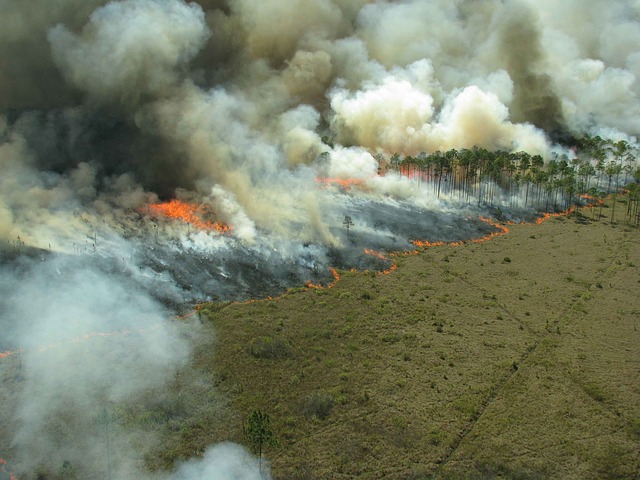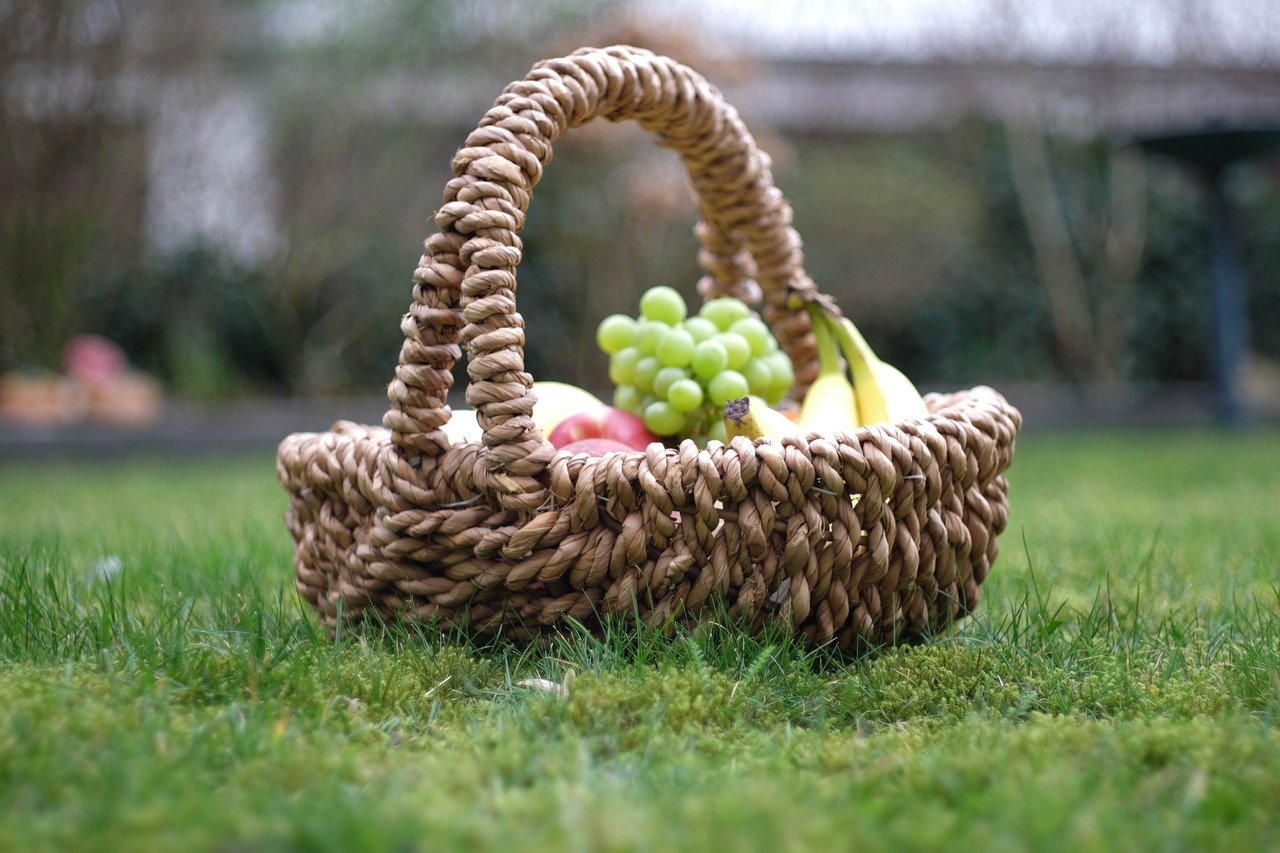
In the heat of summer, the first harvest sabbat in the northern hemisphere brings joy, reflection, and fun. The days continue to remain long, allowing evening picnics and walks through the neighborhood. This is a time to celebrate the plenitude, the fullness, and the profusion of life all around us. Abundance rules, yet in current times of economic recession, social unrest, and viral pandemic, culling is necessary to find the best of our own harvest.
Normally, the term culling refers to removing what is damaged, sick, bruised, or in excess. In picking strawberries or apples, we take away the fruit that looks, smells and presumably tastes the best. We reject what is not appealing to us. In populations with an excess of deer or other wild animals, hunting season might be extended or expanded to reduce the size of the herds that are in a certain area. In forests, rangers use prescribed burns to help maintain the health of the overall ecosystem.

[Prescribed burn – Pixabay]
While the process of culling involves removal of excess or having too much of a good thing, the end result often is exactly what is needed at the time. Likewise, during the time of this sabbat, I look around and beneath the losses to see what remains that is the golden fruit for this harvest season.
I’ve been at home for five months now. During the spring, our homes became our workplaces, school rooms, and gathering places for those who live in them. Thanks to technology, video meetings and a new way of dating sprang into action. New terms emerged such as being “zoomed” – tired out from too many video meetings – or being zumped, dumped over videoconference. Dating during the era of the COVID-19 pandemic resembles dating during the beginning of the HIV-AIDS epidemic, where one’s location, habits, and COVID-19 negative status are more important than wealth or a job.
Instead of multi-generational family gatherings in my home state, I am catching up with four generations online, via video conference or just regular phone calls. Before COVID-19, I might throwaway the phrase “how are you,” unless I knew someone was very ill or going through a rough time Now, like so many, the craving for human connection demands that relationships are deeper and less superficial. With a pandemic where one’s next door neighbor can be here one day and gone in two weeks simply due to a virus, it is hard to remain superficial or casual.
Culling abundance in the current times means taking the time to examine what it really means to be present in body, mind, spirit. Given the current pandemic, I look around and ask if my friends, loved ones, neighbors, and co-workers are healthy, if they are COVID-free or at least COVID-recovering with minimal aftereffects. While the disease can affect many parts of the body, I am grateful for each full, clear, and easy breath that I take these days, knowing that is a form of abundance that some do not have.
Breathing is one of the basic bodily functions that often can be taken for granted because as a part of the autonomic nervous system, it just happens. It is only when we gasp for air or witness someone else struggle that we recall how our lungs convey the precious gift of life.
Besides the physical body, there is the physical home or residence. Given the many trials facing so many in the world at this time, I ask about the presence or absence of a safe and loving home. The blessing of a permanent dwelling, not a tent in a park or bench on the street, is a true abundance that should be celebrated. During hurricane season or after other natural disasters, the first call is to re-establish a safe place of shelter. In celebrating this sabbat, I appreciate and enjoy the home that is around me, as it provides safety and space to nourish the body, mind, and spirit. Having enough to food to prepare, having loved ones for sharing the food, and having the comfort of a place to rest for the night are all types of abundance that are a harvest.

Kronia, abundance [Pixabay]
In addition to the physical home, there is the need to earn a living or to have enough to maintain some type of lifestyle. In these times, I ask about my friends who are able to work or if they do not have a job, due to COVID-19 related furloughs or lay offs, that they have enough to pay their bills or enough sanity to get through the stress of the situation if they do not have the money on hand. While recent government programs have kept many in their homes, the reality is that for some this sabbat may mean a potential loss as the current eviction moratorium in many places ends.
Abundance in the mental realm can be found by removing, or attempting to remove, unnecessary fears and anxiety. Life during a pandemic is stressful on its own, but adding in the economic woes and the social unrest of our time means a level of stress that is unknown in the modern era. Even if the physical is taken care of, the mental part of life is just as important. The proliferation of guides over the past five months attests to a worldwide human need to try to maintain a sane balance in a world that often changes too quickly for many of us.
Sometimes it is too much, and the thought of suicide arises during this COVID-19 crisis. For some, the pandemic plus extended unemployment becomes too much to bear. In this realm, I see culling abundance as finding and utilizing the resources that will pull those who are contemplating suicide back to the side of staying in this world. For those who have lost those who have given up, it is not just the one who chooses suicide, but the ones who are left to live with the absence who suffer. I look around and ask about the mental health services, even ones that can only be conducted via video conference or phone call. These are life saving measures beyond what so many know.
When I think of the heroes of the pandemic, I add therapists, social workers, psychologists, and psychiatrists to that list. Anyone who is helping to keep life in balance is a part of the abundance. They help to cull away the detritus that covers our souls that all too often we cannot see by restoring a part of the broken safety net that uncovers domestic violence, child abuse, and addiction. These are problems that become invisible when we in the pandemic of lockdown or without the normal social interactions that might uncover them.
While culling abundance in spirit might seem to be the easiest task, it requires brutal honesty. What have we gained from the gods, and what do we give back? These are two very simple questions. Depending on one’s own perspective and level of involvement, this could be something as simple as forming a personal code of ethics, sticking to it, and taking the time to do an annual review. During this pandemic, I ask myself what really matters to me and in my life. In culling for spiritual abundance, I ask what do I keep from when I entered my home tradition 14 years ago. What do I stand by from the time Hecate called me in 2002? What do I need to let go? These are not easy questions as sometimes the very habits and familiar ways that are comfortable need to just go away now as they no longer serve future growth.

Picnic [Pixabay]
When I look at how I serve the gods now and how they are present in my life, I see an abundance of love, patience, and assistance when I needed it. I also see times of silence when it was up to me to figure things out. When I look around my family, community, my religious house, and the world at large, I see the need for gathering in whatever way remains: in family groups, in online rituals, in virtual study groups, in increased Facebook use, or just more texts.
Spiritual abundance during this sabbat comes from taking a good hard look at the magical texts, tarot decks, divination processes, herbs, tools, journals, and clothing that forms parts of the individual journey. Just as we clean house at some point, we need to clean and sort our magical life.
A friend of mine is in process of moving and noted how much better and lighter she feels having packed and sorted her magical items. The things that we use at the start of our journey may not be ones we need now. We can lovingly thank them and the gods for their use and give them to others who may need them now. Beginners, especially now, probably could use the extra materials that have been cleansed, blessed, and sent on to another.
I think of when I started my journey. This same friend gave to me some of my first items, including a heavy cloak. This might not seem to be important, but I live in a state where outdoor rituals can be freezing in October and true spring may not come until April or May; this was a precious and most welcome gift.
During this sabbat in particular, I mourn not being outdoors in a large group, roasting meats over the fire pit, and celebrating with the gods as one family. I throw away the disappointment because I know that we will be back during Kronia next year. In culling away what blocks me from seeing the good that surrounds me in whatever form that might be, I embrace a true sense of abundance, harvest and wealth. Sometimes, the need to celebrate comes even during the darkest of times. The pandemic might bring dark times, but we can choose to embrace the joy of season.
The truest blessings of the sabbat are to enjoy what is here – now.
The Wild Hunt is not responsible for links to external content.
To join a conversation on this post:
Visit our The Wild Hunt subreddit! Point your favorite browser to https://www.reddit.com/r/The_Wild_Hunt_News/, then click “JOIN”. Make sure to click the bell, too, to be notified of new articles posted to our subreddit.
Pingback: Column: Culling Abundance | Living, Paganism, Perspectives, Witchcraft - Hunt Skope
Pingback: Column: Culling Abundance – social